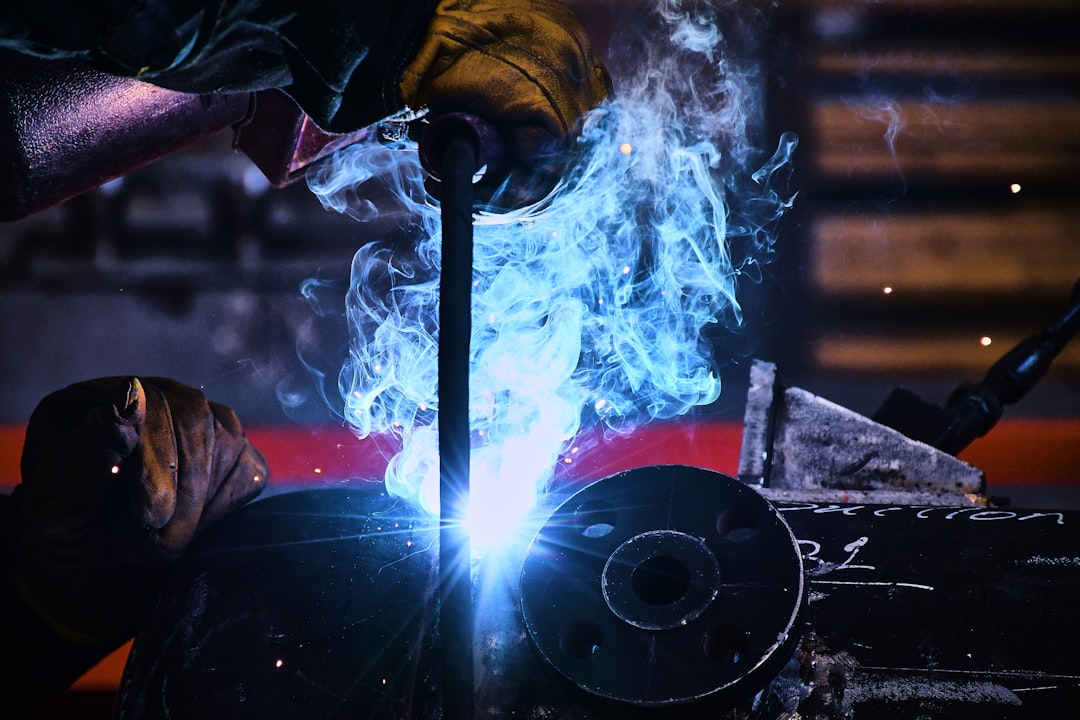The steel industry is a cornerstone of modern infrastructure, demanding skilled professionals to erect skyscrapers, bridges, and countless other structures. If you’re drawn to the precision, strength, and rewarding nature of steelwork, then understanding the available training programs is crucial to launching a successful career. This guide provides a comprehensive overview of the various pathways to becoming a skilled steelworker.
1. Apprenticeships: The Traditional Path to Steelworker Mastery
Apprenticeships remain the gold standard for many seeking a career in steelwork. These programs combine on-the-job training with classroom instruction, offering a well-rounded education. Apprentices typically work alongside experienced journeymen, learning practical skills and techniques. The classroom component covers safety regulations, blueprint reading, mathematics relevant to steel fabrication and erection, and the theoretical underpinnings of steel construction. The duration of apprenticeships varies, usually lasting between three to five years, depending on the specific program and the complexity of the skills learned. Many unions sponsor apprenticeships, offering a structured path with potential for long-term employment and benefits upon completion.
Finding an apprenticeship often requires networking and perseverance. Checking with local unions, contacting construction companies directly, and exploring online job boards dedicated to skilled trades are excellent starting points. Successful applicants typically demonstrate a strong work ethic, mechanical aptitude, and a commitment to safety.
2. Vocational Schools and Trade Schools: Accelerated Steelworker Training
Vocational and trade schools provide a faster alternative to apprenticeships, offering concentrated programs that focus on specific steelwork skills. These programs often cover welding, blueprint reading, rigging, and other crucial techniques. The curriculum is designed to equip students with the foundational knowledge and practical skills needed to enter the workforce relatively quickly. The duration of these programs typically ranges from several months to a couple of years, depending on the intensity and scope of the program.
While vocational schools may not provide the same level of on-the-job experience as an apprenticeship, they offer a strong foundation and can be a stepping stone to further training or employment. Graduates often find entry-level positions in steel fabrication shops or construction sites, where they can gain further experience and potentially pursue apprenticeship opportunities.
3. Community Colleges and Technical Institutes: Bridging Theory and Practice
Community colleges and technical institutes offer a broader range of options, including associate degrees and certificates in related fields such as welding technology, construction management, or structural engineering technology. These programs provide a strong theoretical base complemented by hands-on laboratory work. While they may not directly lead to steelworker certification, the skills and knowledge gained are highly valuable and transferable to the industry. Many graduates of these programs find employment in related roles or use their education as a springboard to apprenticeships or advanced training.
The advantage of this route is the broader educational foundation, potentially opening doors to supervisory or management roles in the future. The structured curriculum and access to resources can be particularly beneficial for individuals seeking a more formalized learning environment.
4. Specialized Training Programs: Niche Skills for Steelworkers
Beyond general steelworker training, specialized programs focus on specific skills within the industry. These might include advanced welding techniques (such as robotic welding or specialized joining methods), rigging and crane operation, blueprint reading and design software proficiency, or structural steel detailing. These programs often cater to individuals already working in the field who seek to enhance their skills or specialize in a particular area. They can significantly improve earning potential and career prospects.
These specialized programs can be found through various avenues, including professional organizations, industry associations, and private training centers. They are frequently shorter in duration than apprenticeships or vocational programs, focusing on a specific set of skills or technologies.
5. Continuing Education and Certification: Maintaining and Enhancing Expertise
The steel industry is constantly evolving, with new technologies and safety regulations emerging regularly. Continuing education is vital for steelworkers to maintain their skills and stay competitive. Many organizations offer continuing education courses and certification programs, covering areas such as advanced welding techniques, new safety protocols, and updated industry best practices. These programs can help steelworkers stay abreast of the latest advancements, improve their efficiency, and enhance their career prospects.
Certifications demonstrate a commitment to professional development and can increase marketability. Various organizations offer certifications relevant to steelwork, often recognizing specific skills and levels of expertise. These certifications can be a valuable asset when seeking promotion or employment in more specialized roles.
Choosing the right steelworker training program depends on individual circumstances, learning styles, and career aspirations. Careful research and consideration of available options are crucial for embarking on a successful and rewarding career in the steel industry.
SEO Tags:
#steelworkertraining, #steelworkerapprenticeship, #weldingschool, #constructiontraining, #tradeschool




